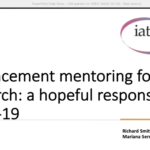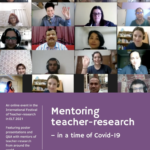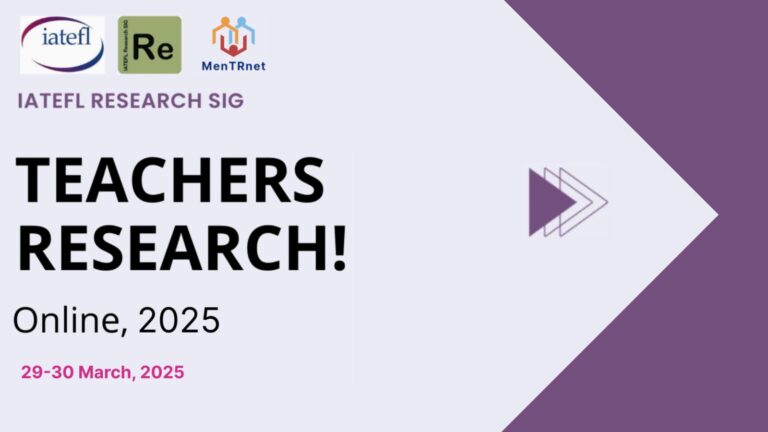
This is the new website of MenTRnet, which itself is a newly named network for mentors of teacher-research in the field of English Language Teaching (though we don’t exclude mentors of teachers of other subjects). It’s ‘newly named’ because we only started to call ourselves ‘MenTRnet’ in March 2024, although there has been a committee organizing activities since 2023 and most of the annual activities we take responsibility for started earlier – workshops orienting new mentors and teachers to teacher-research, monthly support group meetings for mentors, an annual online conference showcasing the work of teacher-researchers around the world, and an associated half-day mini-conference highlighting the experiences of their mentors.
Here, Richard Smith recalls the beginnings of MenTRnet and the way it has been developing since 2020:
MenTRnet started as a way to share ideas I’d been developing from my experience mentoring mentors in India and Nepal in the late 2010s which I’d put together in an open-access book for the British Council, Mentoring Teachers to Research Their Classrooms (2020). As I was completing the book, I invited Seden Eraldemir Tuyan, an experienced mentor from Turkey, to join me in hosting a January–February 2020 five-week set of workshops within the TESOL CALL-IS Electronic Village Online – the Mentoring Teacher-Research EVO – which would introduce participants to mentoring teacher-research, using the book’s syllabus framework and activities. Our intention was to offer follow-up monthly support group sessions for those who wanted to embark on actual mentoring but this plan had to be put to one side due to the Covid-19 pandemic. However, with the support of funding from my university and ESRC (UK), I was able to contact all the teacher-research mentors and former EVO participants I knew to start up support group meetings in May 2021, with an aim in sight of mentors readying teachers to present their research at an innovative event being prepared for December 2021, the Teachers Research! Online 2021 conference. I remember that we preceded this with a half-day online event showcasing mentors’ own experiences.
These ingredients – induction workshops, support group meetings and online dissemination events, repeated each year and cemented together by email and Facebook-based group interactions and notices, are the ‘essential ingredients’ of what has beccome MenTRnet, an active community of practice now numbering more than 260 members. The focus these days is less on dissemination of a particular approach to mentoring based on my book (though reference is still often made to it) and more on sharing of experiences among mentors who have been gaining in experience and competence in these last few years, alongside orientation for new members each year. Online affordances developed during the pandemic – Zoom meetings and events organized online – continue to facilitate our activities but, with a 15-strong committee, we are also branching out into new areas, in particular producing publications. We’re now looking forward to the publication of our first book, in association with IATEFL Research SIG – Stories of Mentoring Teacher-Research – and members have been contributing interviews, articles and reviews to journals, with great supportive impetus being provided by Erzsebet Békés.
In all this, even as we have become an autonomous, named network, our relationships with IATEFL Research SIG (ReSIG) have remained strong, we are again benefitting from a University of Warwick / ESRC grant, and the International Festival of Mentoring Teacher-Research in ELT (2024–25) which we’re currently organizing benefits also from Pilgrims Teacher Training Journal and British Council as well as ReSIG support. All in all, having named ourselves MenTRnet in March, the future for our activities is looking very bright!
About the Author(s)
Richard Smith is a Professor at the University of Warwick, where he has taught on the MA TESOL programme and supervised PhD students for twenty-five years. He has advised on several teacher-research mentoring projects for the British Council, developing the Exploratory Action Research approach to teacher development and original ideas on how to mentor teacher-researchers in the process. He is former coordinator of the IATEFL Research SIG (2011–2015), originator of the Teachers Research! series of conferences and founder and chair of the International Festivals of (Mentoring) Teacher-Research (2017, 2021, 2024). More information: http://www.warwick.ac.uk/richardcsmith





